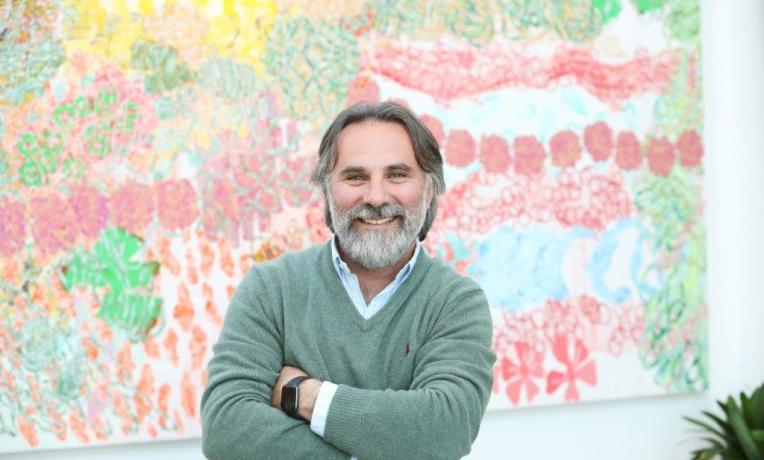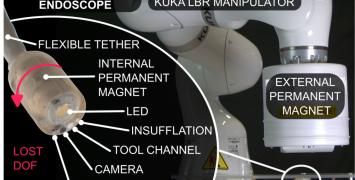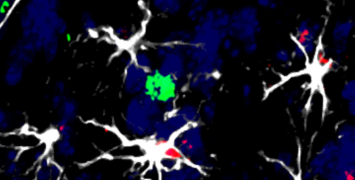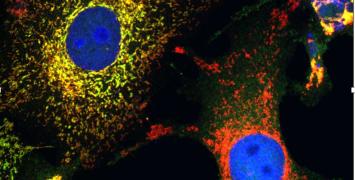Why viruses coated with peptides could hold the key to cancer immunity
A targeted and personalised method for triggering the body’s immune response could transform how we treat cancer. Thanks to a grant from the European Research Council (ERC), an inspired idea has been developed in the lab and turned into a ground-breaking commercial opportunity.

While our body’s immune system is very good at identifying viral infections, it often fails to spot and kill tumours. Vincenzo Cerullo, Professor of Biological Drug Development at the University of Helsinki, Finland, wanted to find a way of getting the body to perceive tumours as infections to trigger an immune response. This, he believed, could help the body attack the cancer.
Prof. Cerullo’s breakthrough was to dress viruses as tumours, by attaching small tumour pieces (amino acid sequences called ‘peptides’) to the surface of the viruses. “If the body mounts a virus immune response, and if the virus is coated with tumour pieces, then it would stimulate a tumour-specific immune response,” he explains. “In other words, we can trick the immune system into thinking that tumours are infections.”
Researchers have been looking for a solution to this for some time. They knew that infecting tumours with a virus can force T-cells to go to the affected area and try to kill the virus. “But while these viruses can create immunity, they cannot direct the immunity in the direction we want against the tumour,” he explains. Prof. Cerullo’s aim was to therefore find a way of giving researchers ‘control’ of this phenomena, to guide the immune response in the direction they want. Attaching the peptides to the viruses, he says, is a process similar to installing a steering wheel in a car.
“With just the virus, it’s a little like having a Ferrari that you cannot steer,” he explains. “T-cells might go to the tumour, but they will be looking for the virus, not the tumour. Attaching tumour-specific peptides enables you to direct the body’s immune response to exactly where you want, which is a fantastic thing.”
A European Research Council grant enabled Prof. Cerullo to turn his PeptiCrad platform into a reality in the lab, and then to spin it out into a company. He credits not only ERC funding in enabling his breakthrough, but also the funding application process itself. “Applying for an ERC grant really forces you to think outside the box, and for me this has been an excellent experience,” he says. “I was able to launch this company not just because I was awarded the grant, but because I applied for the grant. Sometimes applying is the most important part of the process, because it stimulates new thinking.”
Watching this video you are accepting Youtube cookies policy
Academy of Finland video 2017. Vincenzo Cerullo, PEPTICRAD project
He also credits other EU funding opportunities for transforming his career. “Until I was 20, I had no plans to move abroad,” he says. “My friends would have told you; ‘this guy will never go anywhere!’ But then I got an Erasmus scholarship and realised that the world is so much bigger than I thought. I would never have done a post-doc in the US without Erasmus; I would never have come across the Marie Skłodowska-Curie Actions programme; and I would never have applied for an ERC grant.”
PeptiCrad’s spin-off company has been visible at high-level events, and investors are on-board. First patient trials are set to begin in 2020. Prof. Cerullo highlights the point that big pharmaceutical companies can now use their own viruses and their own tumour peptides on the PeptiCrad platform. “We are not forcing people to use our viruses and our favourite peptides,” he says. “What we are saying is that using our technology to cover your virus with peptides will lead to better results.”
Ultimately, says Prof. Cerullo, this is about saving lives and giving new hopes to patients. “I like the fact that what we do in the lab can have a positive impact on people’s lives,” he says. “This is what motivates me. My own son was diagnosed with cancer several years ago (he has since made a full recovery) so I know what it is like to be on the other side of this. I’m interested in making a difference.”






